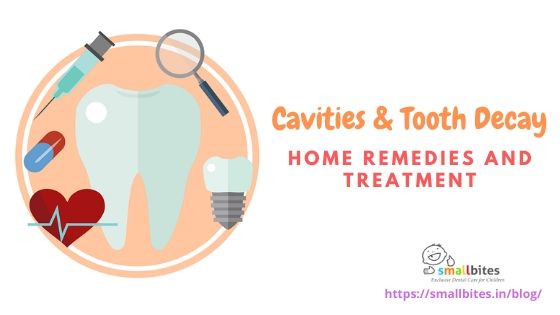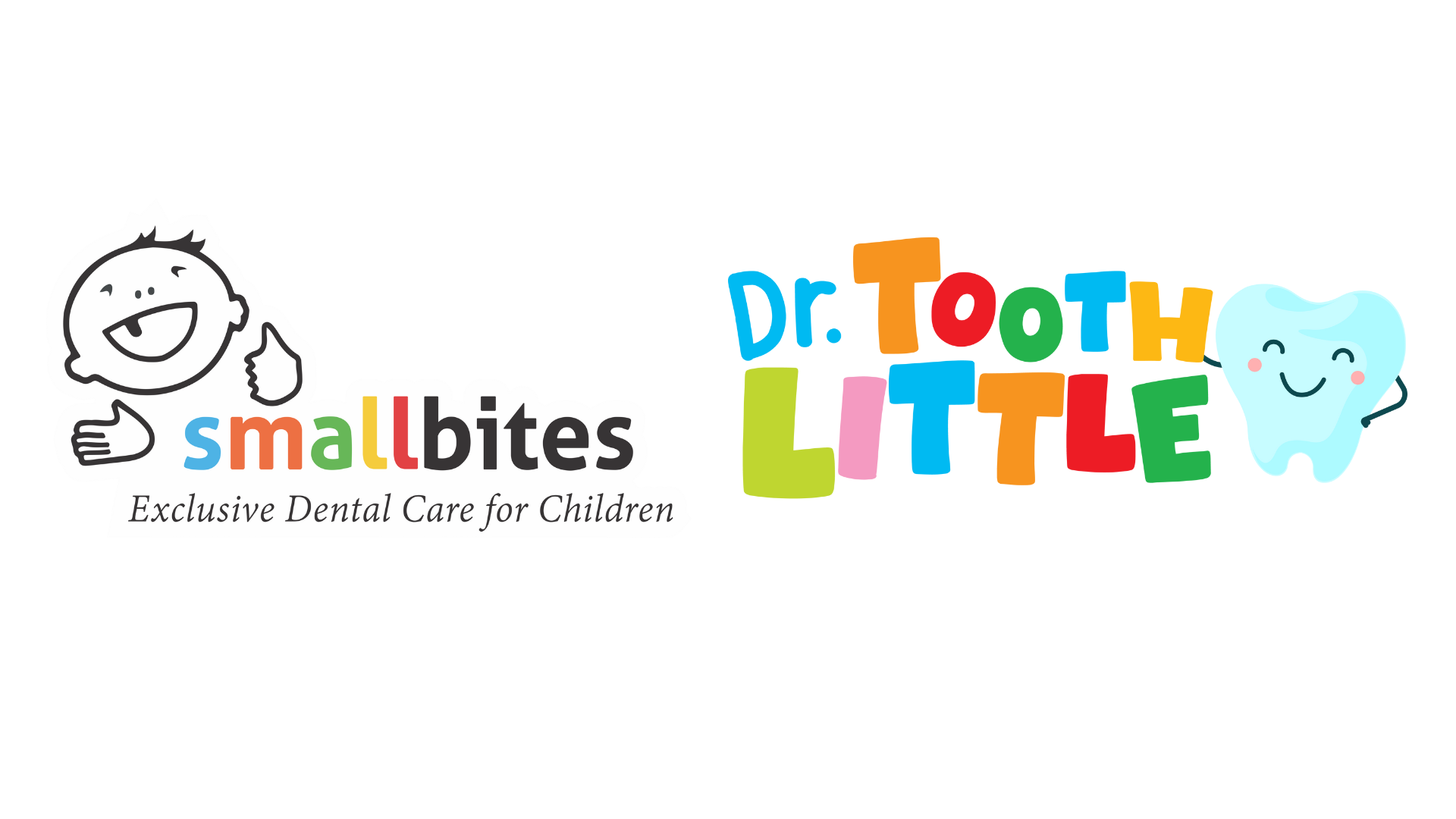
What causes dental cavities in Children?
Whenever you have food or drink containing sugar, it reacts with the bacteria in your mouth to produce acid. Dental plaque, a sticky layer which builds up on your teeth, contains bacteria. The acid attack lasts for at least 20 minutes, but often much longer if food becomes stuck on the teeth or snacking is continuous or frequent. In time, the acid will dissolve the outer enamel surface of the tooth.
In the early stages of decay, the enamel can repair itself by taking in minerals from saliva. Fluoride can also help to strengthen tooth enamel. However, if food and drink containing sugar or acid are consumed frequently between meals, more destruction than repair of enamel occurs. A cavity is formed when the enamel layer crumbles, bacteria enter and the decay process spreads rapidly. After this point, the cavity will not ‘go away’ without treatment.
What are home remedies to prevent Dental Decay?
- Reduce the amount of time that any food containing sugar is present in the mouth. Try to make snacks and drinks between meals sugar free, as far as possible.
- Do not allow babies or toddlers to fall asleep with a bottle of milk, or whilst nursing. The milk will not be washed off and will remain on their teeth during sleep. After drinking milk, teeth should be brushed before sleeping.
- Fizzy drinks are best avoided. Not only do they contain a lot of sugar but the acid (even in sugar-free diet drinks) softens tooth enamel, contributing to cavity formation.
- Concentrated fruit juices are also acidic, so these should be given only occasionally. Water and milk (without added sugar) are the safest drinks.
- Beware of “hidden sugars” in processed foods. These may be labelled as sucrose, glucose, lactose, or fructose – these are all types of sugar.
- It is not realistic to ban your child from eating sweets altogether. Instead, limit consumption of sweet treats to maximum of once a day, preferably at the end of a meal.
- Sweets that dissolve and clear from the mouth quickly e.g. a milk chocolate bar are better than hard candies, lollipops or sticky caramels. Sweets should be eaten in one go, rather than continually snacking on them.
- Regular, thorough tooth brushing to remove plaque. Tooth brushing is a skill which needs to be learnt, ask your dentist to demonstrate the correct technique. Young children will need parents to brush for them, and older children should be supervised.
- Fluoride toothpaste can be used once your child can spit out but remember to use no more than a small pea sized amount.
Why are regular dental check-ups important?
It is very important to take you child for regular check-ups from age one year onwards. This enables the dentist to assess the risk factors for your child developing dental decay and give personalized preventive advice. Also, if early signs of dental decay are seen, it may be possible to prevent it progressing to become a cavity. It is much better for a child to visit the dentist before they have any pain or problems or need treatment.
What are the preventive treatments are available for Dental Decay?
Diet Analysis
Diet plays the most important role in the development of dental caries. The frequency with which food and drinks containing sugar are consumed is more important than the total amount of sugar in the diet. To help discover how eating patterns may be affecting a child’s risk of dental decay they may be asked to keep a diary of everything they eat or drink for at least 3 consecutive days. The dentist can then analyze the diary and give tailored advice on how to change habits and patterns to reduce the risk.
Fissure Sealants
Pits and grooves on the tooth’s biting surfaces are prone to decay, as food and plaque that get stuck in these areas are very difficult to remove even with thorough brushing.
Fissure sealants are a thin plastic coating applied to the biting surface of teeth. They have been proven to be highly effective in preventing cavities. The best time to seal the adult molar teeth is soon after they come through. Baby molar teeth can also be sealed for children who have a higher risk of decay.
Fluoride
Fluoride is a naturally occurring mineral that is found in many foods and, in varying amounts, in all natural water. Fluoride is beneficial, as it strengthens tooth enamel making it more resistant to decay – for this reason it is added to many toothpastes.
Swallowing too much fluoride can cause health risks, therefore exposure to fluoride should be controlled. If young children, whose teeth are still developing, ingest too much fluoride it can cause fluorosis, which appears as discolouration and mottling of teeth. This is also seen in areas with a high level of fluoride occurring natural in the water. Children should only use fluoride toothpaste once they can spit it out and then only a pea-sized amount under supervision.
Fluoride varnish can be applied directly to tooth surfaces. This sets quickly and sticks to the surface to minimize swallowing and maximize its effect. If a tooth has very early dental caries in enamel, it can help to stop the decay and prevent it becoming a cavity. Fluoride varnish is also beneficial for sensitive teeth.
At Small Bites, we provide the highest quality preventive dental care and tooth filling treatments at an affordable cost. To know more about our Dental Decay Management Treatments or to book an appointment, click here. Use below form to request a callback
Click here for other articles related to Cavity and Dental Decay.

